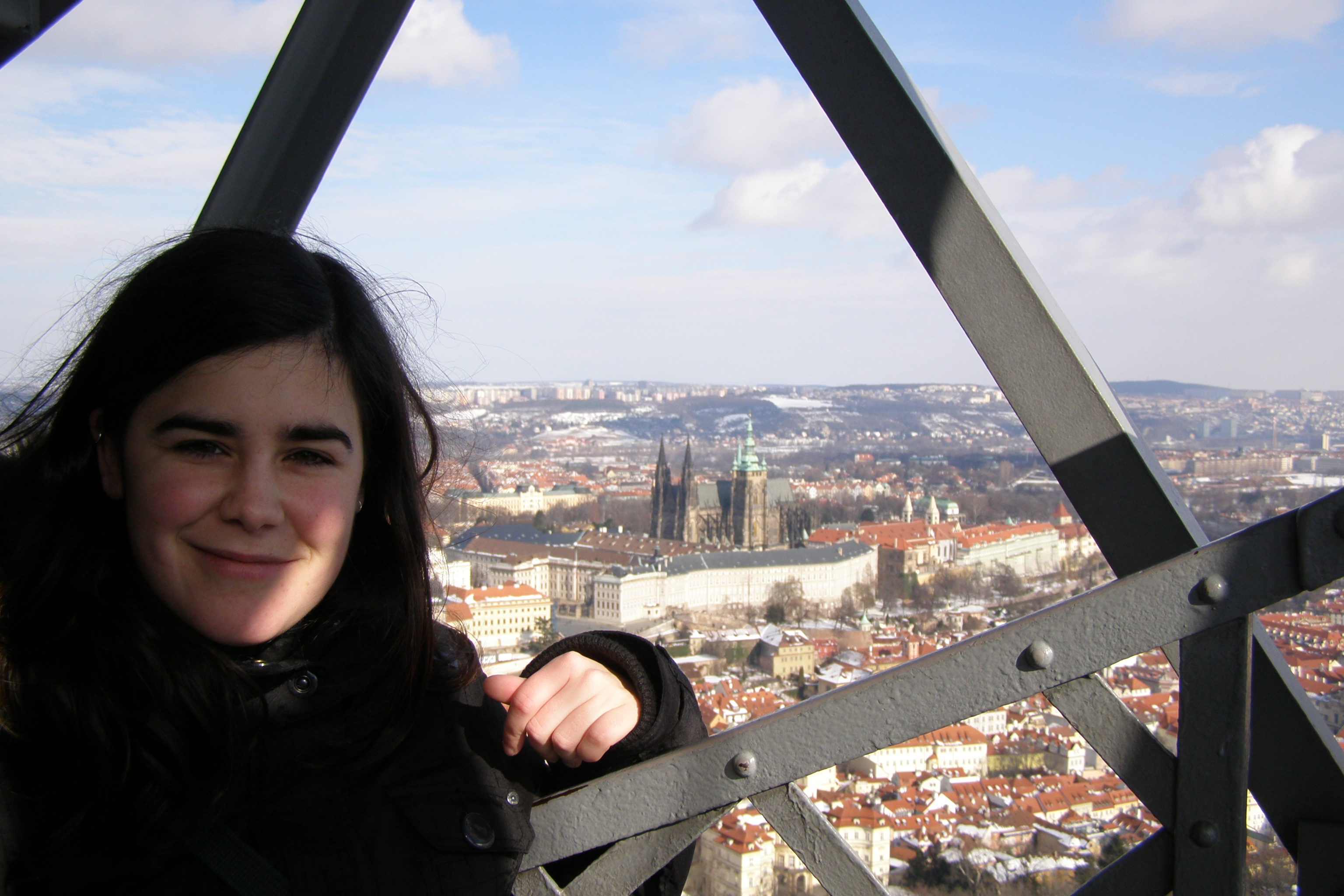"Having a team helps you a lot technically and emotionally"
2019/10/04 Galarraga Aiestaran, Ana - Elhuyar Zientzia Iturria: Elhuyar aldizkaria

The biochemist Lide Arana Urbieta was partly dedicated to the science that came from home: "In my family I have a lot of scientists: physicists, biologists, chemists... As a young man, unlike many of my friends, I was not sure what I wanted to study, but, intentionally or unintentionally, I went to science, and I think that would have an effect that the environment also had. So I decided to study Chemistry, but not to be chemical, but because it was a way to get to Biochemistry.”
Thus, since Química has taken the leap to Biochemistry and, in the last year, it was usual in Leioa to enter some laboratory. "He was called an internal student," he recalls. "A professor told us that there was room in his laboratory and, as I liked the subject, I started there. Then I did the thesis."
He explains that they worked in a laboratory with a special type of lipids (ceramide-1-phosphate). Previously it was thought that this lipid did not have a special function, but only helped to form structures. However, they have found that it regulates many biological functions and have paid special attention to their relationship with cardiovascular diseases.
Therefore, he dedicated his last year and thesis on this subject. Despite the difficulty of performing the thesis, it has good memories, especially of the members of the laboratory: "We were all on similar issues and we helped a lot. I have realized that friendship was key because they spend very hard moments. I don't know what it will be like in other areas, but having a team in experimental sciences helps you a lot technically and emotionally."
In addition, the thesis allowed him to travel abroad: "I studied a lot in stays and trips to congresses. It is very enriching. You see how they work in other places, relationships, new ideas..."
According to Arana, he was fortunate that in the laboratory there was money and, therefore, if he had an idea, it was enough for the director to have it for good to advance. All this allowed him to investigate with great freedom.
Researcher and professor: seeking balance
Before completing his scholarship to carry out his thesis, he joined the university as a professor. At first he combined the thesis and, when presenting the thesis, he continued as a professor. At the same time, he finished his experiments and published some papers. And just then another researcher working in another laboratory in the same department abandoned the work to dedicate it to Arana.
"It seemed to me that it was time to change." He continued to investigate (and follow) on lipids, but they are otherwise: "We use these lipids to form nanometric structures whose aim is to improve the administration of drugs through these nanostructures."
He joined as a postdoctoral researcher in Haiera, with additional hours of teaching. However, over time, as substitutions are made, teaching has been gaining weight. Despite recognizing that he likes teaching very much, he acknowledges that he has a lack of research: "For the moment I have the opportunity to continue as a teacher and I would like to get an attached square. To see what happens, but my hope is to go back to research and achieve a balance between research and teaching."
Born in San Sebastian in 1984. He holds a degree in Biochemistry and Molecular Biology and a Master in Biomedicine and Molecular Biology from the Faculty of Science and Technology (UPV). In 2012 he received a doctorate in Biochemistry and was a postdoctoral researcher for two years. Professor of the UPV since 2011





